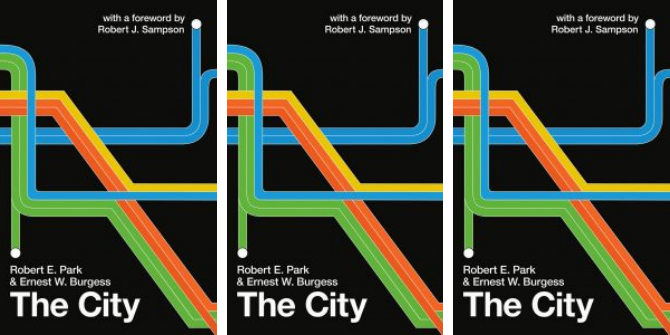In this book, the authors set out to explore the possibility of the collapse of global capitalism. They argue that the generalization that there is no alternative to capitalism is not supported by theory, but is rather an outgrowth of the optimistic nineteenth-century claim that human history ascends through stages to an enlightened equilibrium of liberal capitalism. Christel Lane finds that this book provides stimulating yet accessible answers to the pressing questions regarding the future of capitalism.
Does Capitalism Have A Future? Immanuel Wallerstein, Randall Collins, Michael Mann, Georgi Derluguian and Craig Calhoun. OUP December 2013.
The current recession and the economic crisis it has engendered have brought forth a torrent of publications on the state of global capitalism. This collection of contributions from five internationally renowned scholars in the field of the political economy of capitalism/state socialism is different. It goes beyond the mere diagnosis of the origins and consequences of the crisis and additionally provides searching, incisive, highly stimulating, yet also accessible answers to an exceedingly important question: whether capitalism will endure and, if not, what might come after capitalism as we know it.Taking the macro sociological analyses developed in their prior publications as starting points, four of the above authors present novel prognoses for the future of capitalism or its likely replacement. They do not indulge in futurology but always extrapolate from structural tendencies discernible at the current stage of capitalism. The fifth contributor, Georgi Derluguian, in contrast, looks for any lessons that might be derived from the historical development and collapse of state socialism in the former Soviet Union. Here it is notable that all the contributors rule out state socialism of the Soviet kind as a successor regime to capitalism. These chapters are framed by a collectively written introduction and conclusion.
While Wallerstein and Collins envisage the collapse of the world capitalist system in the coming three or four decades, Michael Mann contends that capitalism will persist, albeit in a reformed version. Calhoun suggests that, to endure, capitalist political economies have to introduce very drastic institutional transformations. All authors, though to different degrees, additionally focus on intersections of capitalist development with ecological crisis. For reasons of space, I can review only three of the five chapters, although all offer excellent analyses.
Wallerstein examines the changes in both Kondratiev and Hegemonic Cycles, perceived as mechanisms that, during normal times, bring capitalism back to equilibrium. However, during the coming three to four decades equilibrium will no longer be attainable. Wallerstein diagnoses exhaustion of possibilities to increase capital accumulation and therefore predicts capitalism’s collapse in the near future. Michael Mann points out that Wallerstein’s systemic perspective, implying law-like developments, recurring cycles, and a mono-causal logic of political-economic transformation, is bound to ignore complex interactions of networks of power and therefore is much more likely to arrive at a diagnosis of system collapse. Despite Wallerstein’s world-system perspective, his analyses do not pay sufficient regard to developments in the emergent economies of China and South America, where economic crisis tendencies have been hardly present since 2008.
In the final section of his chapter, Wallerstein examines the political struggle over possible replacements of capitalism. This section is somewhat disappointing. It diverges from his previous conceptual framework, with the economy almost disappearing from the discussion. Also his selection of the spirit of the Porto Alegre camp as one candidate for pointing towards a possible future remains too broad and vague to convince.

Randall Collins shares some aspects of Wallerstein’s systemic perspective, but focuses on only one long-term structural weakness within capitalism. This is the disappearance of the traditional middle class whose jobs are being automated. While technological displacement of manual labour was already discussed by Marx, a similar displacement of the middle class is presented as novel. Collins holds that, unlike in the past, capitalism can no longer generate any escape routes from such displacement by creating more or new jobs for middle class labour. Left without the means to consume, we face the disappearance of markets capitalists rely on for constant accumulation. This, together with the resulting political disaffection, will destroy the capitalist system. When unemployment, from 2030 onwards, reaches 50 to 70 percent of the work-capable population, Collins argues, the capitalist system can no longer survive. As in Wallerstein’s scenario, the unveiling of the post-capitalist future – said to entail a massive redistribution of wealth – remains quite vague as to new technological and economic developments. Unless a reversal of technological development is envisaged, redistribution between the classes cannot solve the problem of structural unemployment.
While Collins puts his finger on a development currently under way and provides plenty of examples of technological displacement, he weakens his case by several crucial omissions. He does not present any statistics bearing out a progressive trend in middle class technological displacement. Worse, he provides no definition of the middle class and does not systematically explore what aspects of middle class work make technological displacement likely or, equally feasible, unlikely. He does not consider that the performance of very complex cognitive operations or of work with a strong relational component might be resistant to technological displacement. Furthermore Collins does not allow that consumers of certain groups of services, such as in the areas of medicine, social work, or policing, are likely to show strong resistance to removing human contact from them.
Michael Mann diverges from the above two theorists in that he envisages ‘a kaleidoscopic recombination of the four non-congruent and distinctly shaped networks of social power’. Consequently, the future, in his eyes, will not be determined by the failings of capitalism alone. His deep historical knowledge, genuine consideration of economic development of the whole globe, together with his plausible thesis of a multi-causality of societal transformation, allow him to make very considered analyses of possible future scenarios. Extrapolating from structural tendencies in all four networks of power during the current time, he suggests a number of possible scenarios for the future, including the survival of capitalism. One of these latter scenarios is very optimistic. Mann posits a low-growth global capitalism to emerge around 2050 in which American hegemony has been replaced by a multi-polar network of power. He disputes that this, by itself, must lead to terminal crisis and revolution. Low growth and even between 15 and 20 per cent of unemployment, if accompanied by reformist socialist or social-democratic redistribution, in his view, is sustainable. It may even usher in a variety of capitalism superior to its current neo-liberal form. But before we have time to rejoice at this prospect, Mann outlines the much more serious threat to the globe, emanating from global warming. Although very pessimistic about its social consequences, he nevertheless allows that some political management and solution of the ecological crisis may be possible.
An excellent, collectively written Conclusion to the book compares the various prognoses outlined above and additionally examines the role the social sciences may play in ‘a transformative future’. It is acknowledged that macro-historical analysis such as theirs can do no more than ‘connecting the dots in a big puzzle’. Nevertheless, the authors suggest that both theoretical and empirical social scientists will have plenty of crucial intellectual work to do in rising to the challenges and opportunities posed by a forthcoming transformation or demise of capitalism.
—————————————
Christel Lane is Professor of Economic Sociology at the Department of Sociology, University of Cambridge. Read more reviews by Christel.








1 Comments